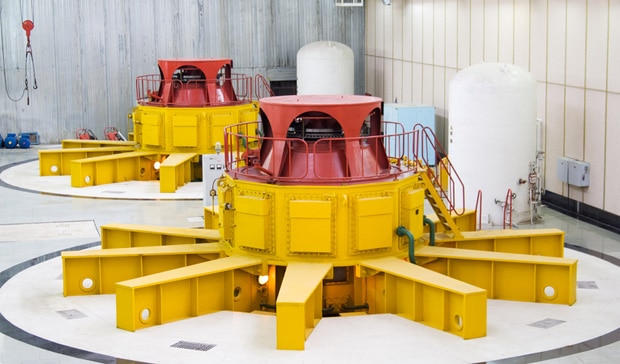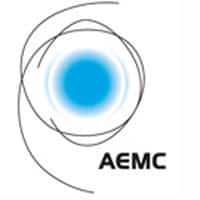The Australian Energy Market Commission is expanding the number of retail customers who are eligible to provide stability to the electrical grid.
To maintain a stable power supply, generators must provide as close to a 50 Hz signal as possible. Frequency control ancillary services (FCAS) manipulate the power supply to achieve this.
FCAS are procured from market participants to help keep power demand and supply continuously balanced. AEMC now wants to expand the eligibility of those market participants.
Coal-fired turbines vs renewables: a question of inertia
Massive, coal-fired turbines continue to rotate at 50 Hz for some time even after they fail. This is because their size gives them inertia. This acts as a ‘pad’ to keep the power supply at 50 Hz while repairs are made or another generator is brought on line.

But if the frequency gets too low, it is increased by FCAS, which either increase generation or decrease demand. When the frequency is too high, it is reduced by FCAS, which lower generation. This ‘demand response’ maintains the all-important 50 Hz frequency of our electricity grid.
However, solar panels have no inertia – when they stop working, their output cuts immediately. As a result, ‘artificial inertia’ must be added to the system.
This can be done with a smart power inverter and battery storage solutions, but these are still small-scale solutions.
Renewables, the FCAS and electrical grid security
At the moment, FCAS are provided by large-scale generators. However, with renewables entering the system, regulators must look elsewhere to find the FCAS needed for a secure power supply.
This new ruling will extend FCAS eligibility to customers who were formerly excluded due to their status as ‘non market load’.
This AEMC ruling will enable any customer to enter into an agreement with a market ancillary service provider to offer their load into FCAS irrespective of who their retailer is.
Opening up the field means more sources of FCAS will be available to the electrical grid than before, offsetting the decline in large-scale coal and gas-fired turbine generators.
The new ruling will come into effect on August 29, 2017.












































